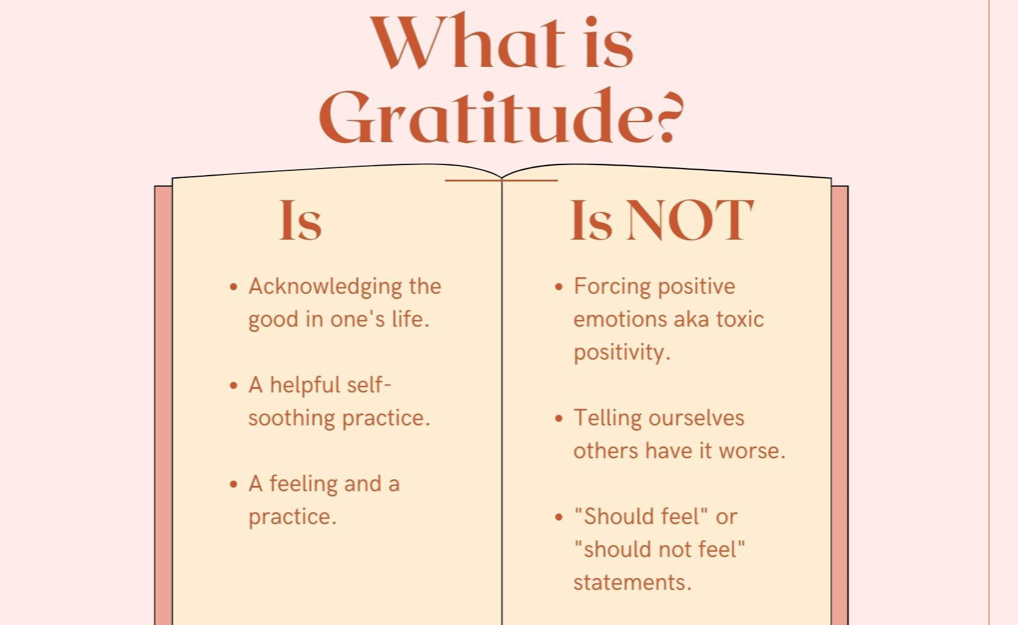Are you really practicing gratitude?

But I should be grateful….right?
Recent times have called for the re-evaluation and adjustment of self-care practices and an emphasis on perspective and acceptance-based skills. One perspective skill that has garnered increasing interest is gratitude. Gratitude is known for its positive impacts on mental and physical health, such as improved relationship satisfaction, reductions in stress, anxiety, and anger, enhancing empathy, and aiding sleep. How? One reason is that feeling grateful floods us with oxytocin, which in turn creates more oxytocin receptors; an upward spiral that makes us happier (to learn more, Google “Gratitude and Oxytocin, you’ll see a heap of studies!)
A search of the web resulted in many differing definitions of gratitude, however, there was a consensus across definitions, being that of the ability to conjure feelings of thankfulness and appreciation for others, the world, and ourselves. It is suggested that this can be aided by focusing on what we have, rather than focusing on what we don’t.
“I am thankful for all that I have and all that I am”
If you are a fan of journaling, you are probably not a stranger to a gratitude prompt, for example:
Write down one good thing that has happened to you today.
Who makes you feel loved and why?
What cheers you up when you’ve had a hard day?
What is something that money can’t buy that you are grateful for?
Prompts such as these allow us to check in with ourselves and take a mindful moment to consider what small, or big things, we have to embrace in life.
But when does gratitude get misunderstood? The world has gone through its fair share at the moment, as has all its beings. Statements that I am hearing more and more frequently recently include: “but I should be grateful for…” and “other people have it worse”. These statements promote self-invalidation, as to suggest that their understandable mental health struggles are unjustified. Therein lies the misunderstanding of gratitude, that it involves being appreciative of the things that haven’t gone wrong, all the while dismissing the painful thoughts and feelings we are experiencing. It is understood that these statements present as an ability to manage difficult feelings, however, often attempts to minimize thoughts and feelings only serves to amplify them. As psychologist and emotional agility researcher Dr. Susan David suggests, give yourself permission to feel all of your emotions, not only the “positive” ones.
We all deserve to tread lightly with ourselves, particularly in the face of lockdown restrictions. This might call for the incorporation of self-compassion in our gratitude practices!
If you are interested in setting up a gratitude practice, check out https://gratefulness.org/practice/private-gratitude-journal/ for tips on keeping a gratitude journal.
So, are you practicing gratitude or invalidation?
References
https://positivepsychology.com/gratitude-appreciation/
https://www.psychologytoday.com/us/blog/making-change/201605/when-gratitude-works-and-when-it-doesnt

